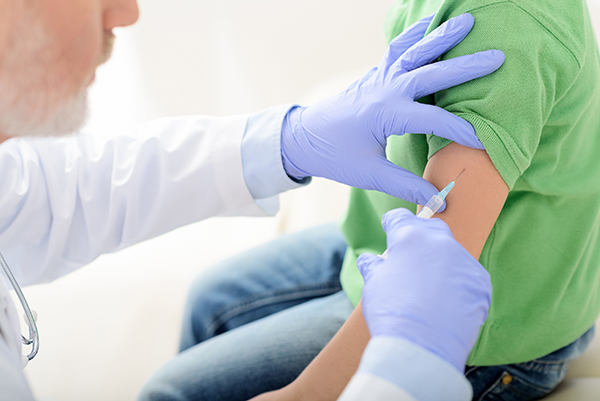From car seats and baby gates to bicycle helmets and football pads, there are numerous ways to protect children as they grow. One of the most important ways to protect them is by getting them vaccinated.
Many life-threatening diseases, such as polio and smallpox, have been practically eliminated today in the United States because of the development and implementation of vaccines.
According to the Centers for Disease Control and Prevention, nearly 1 million American children aren’t fully immunized, and this may be why we’re seeing a resurgence of illnesses, like measles, across the United States.
Dr. Chitra Mani, pediatric infectious disease physician, shares four reasons why children should be immunized:
- Immunizations can save your child’s life. Because of advances in medical science, your child can be protected against more diseases than ever before. Vaccines are really one of the greatest discoveries in modern medicine. Some diseases that once injured or killed thousands of children have been eliminated completely and others are close to being gone – primarily due to safe and effective vaccines.
- Immunizations protect others you care about. Serious vaccine-preventable diseases still occur. Unfortunately, some babies are too young to be completely vaccinated and other people may not be able to receive vaccinations due to allergies, illness, weakened immune systems, or other reasons. It is important that you and your children who are able to get vaccinated are fully immunized in order to prevent the spread of these diseases to more vulnerable friends and loved ones.
- Immunizations can save time and money. A child with a vaccine-preventable disease will likely be kept out of school or daycare. Likewise, a prolonged illness can take a financial toll because of lost time at work, medical bills, or long-term disability care. In comparison, getting vaccinated against these diseases is a good investment and almost always covered by health insurance plans. For those without insurance or the underinsured, ask your health care provider about the Vaccines for Children program, a federally funded program that provides vaccines to children at no cost.
- Vaccinations are safe and effective. Vaccines have been carefully studied and reviewed by scientists, doctors, and healthcare professionals before they were approved for use. Immunizations may cause pain, redness, or tenderness at the site of the injection but this is minimal compared to the symptoms and dangers of the diseases themselves. Also, groups of experts, including the American Academy of Pediatrics, the Institute of Medicine, the National Institute of Health, and the CDC agree that vaccines are not responsible for autism despite myths to the contrary.
Immunizations are an important part of well-child care. In addition, many adults need periodic boosters. Put simply, immunizations save lives.
For more information, visit cdc.gov/vaccines or talk to your doctor.




